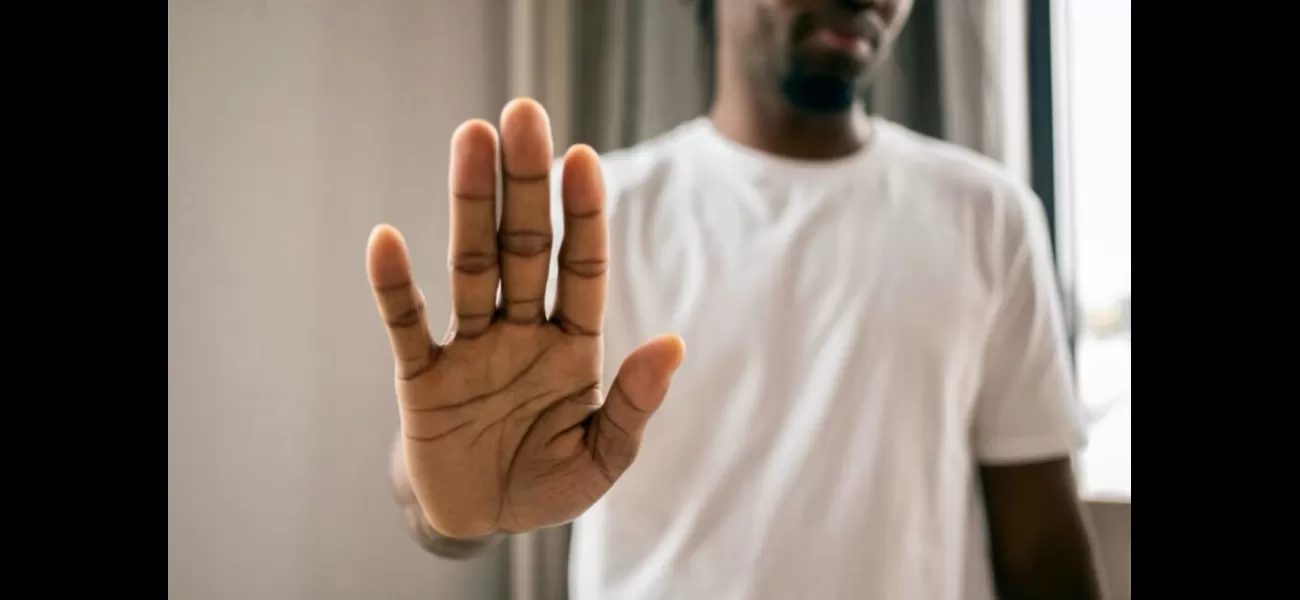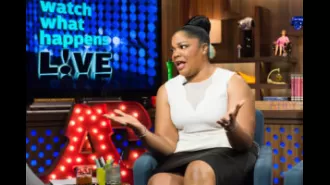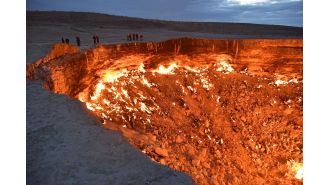Pew Study: Black Americans' Lack of Trust in Government Institutions Examined
A survey of nearly 5,000 Black and multiracial Black individuals in the US was conducted in September.
June 11th 2024.

Why is there a sense of distrust among some Black Americans towards the government? The Pew Research Center recently conducted a study to delve into the reasons behind this issue. This study focused on how Black people perceive various institutions in the United States, such as the police, media, and political system, as working against them.
In September of last year, the research gathered data from 4,736 Black respondents, including multiracial Black and non-Hispanic individuals, as well as Black and Hispanic individuals. According to a report by AP News, the study also delved into the Black community's perspectives on conspiracy theories and their views on success and failure in comparison to their white counterparts.
The study defines conspiracy theories as "ideas that Black Americans may have about the actions of U.S. institutions that do not align with their stated goals." It also suggests that these beliefs stem from the documented history of racist policies that have disproportionately affected Black communities in the country.
The researchers at Pew also examined the prevalence of conspiratorial beliefs about discrimination by pivotal institutions against Black Americans. They also looked into generational concepts, such as the notion of having to work twice as hard to succeed in comparison to white Americans.
Kiana Cox, a senior researcher at Pew and the study's author, explains, "There are conversations within the Black community about the system, the Man, the invisible hand, and the agenda that is working to hinder Black advancement. We wanted to explore these ideas and understand how many Black people are familiar with them and believe in them."
The study found that over 80% of Black Americans surveyed support the statement that "Black people are more likely to be incarcerated because prisons want to make money on the backs of Black people." Additionally, over 60% of Black adults in the study agreed that institutions like policing, the criminal justice system, and the economic system are designed to hold Black people back.
While the focus of the study was on conspiracy theories, it is disheartening to note that some of these beliefs reflect the reality of the situation in America. In 2022, Black people made up 32% of sentenced state and federal prisoners, despite only representing 12% of the overall population. In comparison, white people were underrepresented at 31%, and Hispanics accounted for 23% of the prison population, according to the Bureau of Justice Statistics.
Tasha Philpot, a professor of political science at the University of Texas at Austin, who specializes in studying political psychology among Black Americans, explains, "When you have a history of American institutions conspiring against Black people, it's not hard to believe that other things could be true as well." She added, "Especially in recent years, where race has been a prominent issue, it is not surprising that people would feel that they are experiencing racial discrimination."
The study also revealed that among Black adults who reported experiencing discrimination in America, three-quarters felt that it made them believe the system was designed to keep them down. The emotions associated with these experiences varied, with 76% feeling angry, 53% reporting worries about their safety, and 41% revealing feelings of depression.
Philpot cited examples such as the Tuskegee syphilis experiment and the exclusion of Black Americans from New Deal policies that favored white Americans as documented evidence for why Black Americans hold certain racial conspiracy theories about politics. She also stated, "It's not really a conspiracy theory if it's true."
In related news, actor Wendell Pierce recently shared his frustration with racism and bigotry after being rejected from purchasing a home. These issues further highlight the ongoing challenges faced by Black Americans in the country.
In September of last year, the research gathered data from 4,736 Black respondents, including multiracial Black and non-Hispanic individuals, as well as Black and Hispanic individuals. According to a report by AP News, the study also delved into the Black community's perspectives on conspiracy theories and their views on success and failure in comparison to their white counterparts.
The study defines conspiracy theories as "ideas that Black Americans may have about the actions of U.S. institutions that do not align with their stated goals." It also suggests that these beliefs stem from the documented history of racist policies that have disproportionately affected Black communities in the country.
The researchers at Pew also examined the prevalence of conspiratorial beliefs about discrimination by pivotal institutions against Black Americans. They also looked into generational concepts, such as the notion of having to work twice as hard to succeed in comparison to white Americans.
Kiana Cox, a senior researcher at Pew and the study's author, explains, "There are conversations within the Black community about the system, the Man, the invisible hand, and the agenda that is working to hinder Black advancement. We wanted to explore these ideas and understand how many Black people are familiar with them and believe in them."
The study found that over 80% of Black Americans surveyed support the statement that "Black people are more likely to be incarcerated because prisons want to make money on the backs of Black people." Additionally, over 60% of Black adults in the study agreed that institutions like policing, the criminal justice system, and the economic system are designed to hold Black people back.
While the focus of the study was on conspiracy theories, it is disheartening to note that some of these beliefs reflect the reality of the situation in America. In 2022, Black people made up 32% of sentenced state and federal prisoners, despite only representing 12% of the overall population. In comparison, white people were underrepresented at 31%, and Hispanics accounted for 23% of the prison population, according to the Bureau of Justice Statistics.
Tasha Philpot, a professor of political science at the University of Texas at Austin, who specializes in studying political psychology among Black Americans, explains, "When you have a history of American institutions conspiring against Black people, it's not hard to believe that other things could be true as well." She added, "Especially in recent years, where race has been a prominent issue, it is not surprising that people would feel that they are experiencing racial discrimination."
The study also revealed that among Black adults who reported experiencing discrimination in America, three-quarters felt that it made them believe the system was designed to keep them down. The emotions associated with these experiences varied, with 76% feeling angry, 53% reporting worries about their safety, and 41% revealing feelings of depression.
Philpot cited examples such as the Tuskegee syphilis experiment and the exclusion of Black Americans from New Deal policies that favored white Americans as documented evidence for why Black Americans hold certain racial conspiracy theories about politics. She also stated, "It's not really a conspiracy theory if it's true."
In related news, actor Wendell Pierce recently shared his frustration with racism and bigotry after being rejected from purchasing a home. These issues further highlight the ongoing challenges faced by Black Americans in the country.
[This article has been trending online recently and has been generated with AI. Your feed is customized.]
[Generative AI is experimental.]
0
0
Submit Comment





